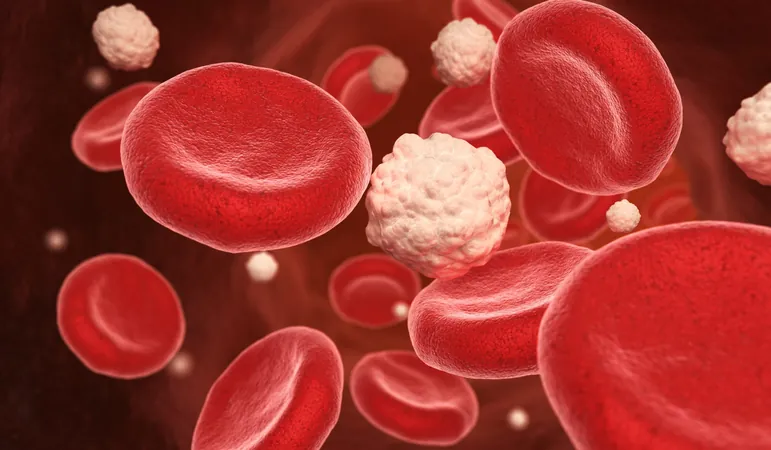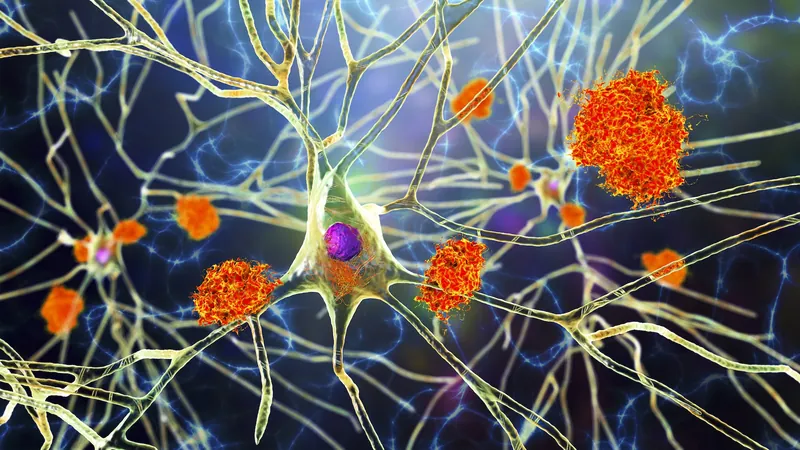
Unveiling GLUT4: The Surprising Link Between Sugar Transport and Viral Defense!
2024-12-30
Author: John Tan
Introduction
In a groundbreaking discovery, researchers from the University of Connecticut have revealed that GLUT4, a well-known glucose transporter, plays an unexpected role in the body's defense against viral infections. Featured in the December 2024 issue of *Nature Immunology*, this research points to GLUT4’s dual functionality beyond simply transporting sugar.
Role of GLUT4 in the Body
GLUT4 is primarily located in fatty tissues, skeletal muscles, and the heart, where it acts as a crucial player in regulating blood sugar levels by facilitating the uptake of glucose into cells. When GLUT4 fails to perform its role effectively, the risk of developing Type 2 diabetes significantly increases.
GLUT4's Unexpected Role in Viral Defense
However, scientists have now identified that during a viral infection, GLUT4 can also suppress the immune system's response by restraining molecules that would typically alert the body of an impending infection. Lead researcher Penghua Wang, an immunologist at the UConn School of Medicine, raised a pivotal question: Why would GLUT4 inhibit the antiviral immune response?
Experimental Findings
This inquiry stems from earlier observations in Wang's lab regarding UBXN9, a protein that binds to GLUT4, retaining it within cells and releasing it when necessary. Their experiments on mouse skeletal muscle and human heart cells demonstrated that the absence of GLUT4 resulted in enhanced antiviral immunity. The researchers conducted experiments using mice infected with the Coxsackie B virus, known for causing viral myocarditis, a severe inflammation of the heart. The results were astonishing; mice devoid of GLUT4 showed significantly reduced viral replication and inflammation compared to their normal counterparts.
Implications of GLUT4 Dysfunction
While the exact reason for GLUT4's role in dampening antiviral immunity remains an enigma, Wang theorizes that this phenomenon might be protective for the host by potentially inhibiting certain autoimmune inflammatory diseases. Notably, a correlation has been observed between GLUT4 dysfunction and rare autoimmune muscle disorders in humans.
Future Directions
This research opens intriguing avenues for therapeutic exploration. By investigating GLUT4 inhibitors, scientists may develop new strategies to combat viral infections and the associated heart complications. As the scientific community continues to unravel the complexities of GLUT4, this finding could pave the way for novel treatment approaches and a deeper understanding of immune regulation in the context of metabolic processes.
Conclusion
Stay tuned as more revelations unfold in the fascinating intersection of immunology and metabolism!


 Brasil (PT)
Brasil (PT)
 Canada (EN)
Canada (EN)
 Chile (ES)
Chile (ES)
 Česko (CS)
Česko (CS)
 대한민국 (KO)
대한민국 (KO)
 España (ES)
España (ES)
 France (FR)
France (FR)
 Hong Kong (EN)
Hong Kong (EN)
 Italia (IT)
Italia (IT)
 日本 (JA)
日本 (JA)
 Magyarország (HU)
Magyarország (HU)
 Norge (NO)
Norge (NO)
 Polska (PL)
Polska (PL)
 Schweiz (DE)
Schweiz (DE)
 Singapore (EN)
Singapore (EN)
 Sverige (SV)
Sverige (SV)
 Suomi (FI)
Suomi (FI)
 Türkiye (TR)
Türkiye (TR)
 الإمارات العربية المتحدة (AR)
الإمارات العربية المتحدة (AR)